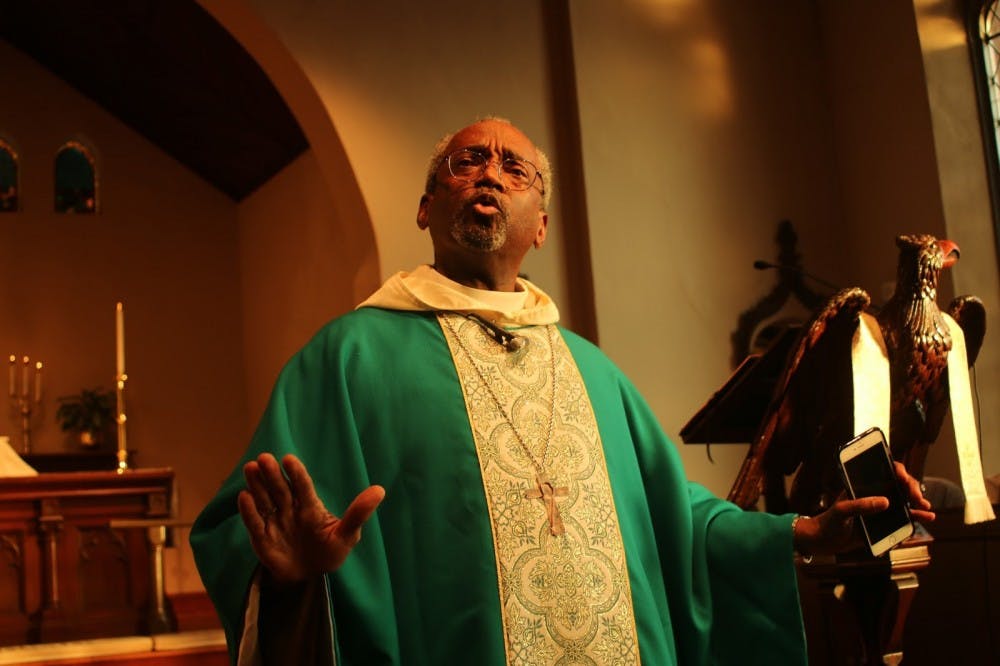Presiding Bishop Michael Curry visited St. Paul’s Memorial Church near the Corner Thursday evening to deliver a message of support and love to a community shaken by the violent events of Aug. 11 and 12.
As the presiding bishop, Curry is the leader of the Episcopal Church, a denomination which has 1.9 million members. He is the first African-American to be elected to the position.
Curry proclaimed he “[wasn’t] getting political at all,” but he clearly emphasized the importance of compassion in the face of such conflict.
“You will never know if I’m a Republican or a Democrat, but this is what you’ll know — I follow Jesus and Jesus said love … The way of Jesus, the way of the cross, of unselfish love, is the way that changes lives and changes the world,” he said.
According to the program, the service centered around a Eucharist of “The Reign of Christ.”
Reverend William Peyton, rector and chaplain of St. Paul’s Memorial Church, wrote in the program that the job of an ordained bishop is “to testify to Christ’s sovereignty.”
“We stand always in need of this testimony, but never more so than when the powers and principalities of this world assert themselves by manifesting discord, hatred and violence such as visited Charlottesville this summer,” Peyton wrote.
Curry, who was installed as the 27th presiding bishop in November 2015, delivered his sermon to a crowd that was solemn at times and enthusiastically laughing and clapping at other times.
“The way and spirit of Jesus is clearly out of step with the way the world would function on its’ own … It is out of step with the way Michael Curry would function on his own!” he joked. “Organized, intentional, mobilized, sacrificial love is the only way to change the world.”
As an example, Curry relayed the story of a man he had met who was an ex-Ku Klux Klansman. While growing up, the man was a “supposed Christian who knew more about hate than [he] knew about love.” When he moved away from his “deep South” roots, he came upon an Episcopal church that talked about “the love of God,” and he ended up converting.
At one point, Curry also reflected on Rev. Martin Luther King Jr.’s “Ten Commandments for Cultural Change,” likening the hatred that existed in the ‘60s to that Charlottesville experienced recently.
He read some of them aloud, including, “Walk and talk in the manner of love, for God is love,” “observe with both friend and foe the ordinary rules of courtesy” and “refrain from the violence of fist, tongue or heart.”
Curry, who has actively spoken out against social justice issues related to areas such as immigration and marriage equality, also spoke about the need for a change in the style of leadership in the nation, stressing the qualities of humility, meekness and compassion.
“When is the last time you saw [those qualities] in a politician?” he asked.
The sermon finished with an uplifting point from Curry.
“Charlottesville, Virginia, lift up your head,” Curry said. “Straighten your back. Walk together. Black, white or brown, muslim, Baptist, Jew, Catholic, Sikh, Atheist, Hindu, Episcopal. Walk together, Virginia. Walk together. Work together. And live the way of love until the love of God transforms this world.”







